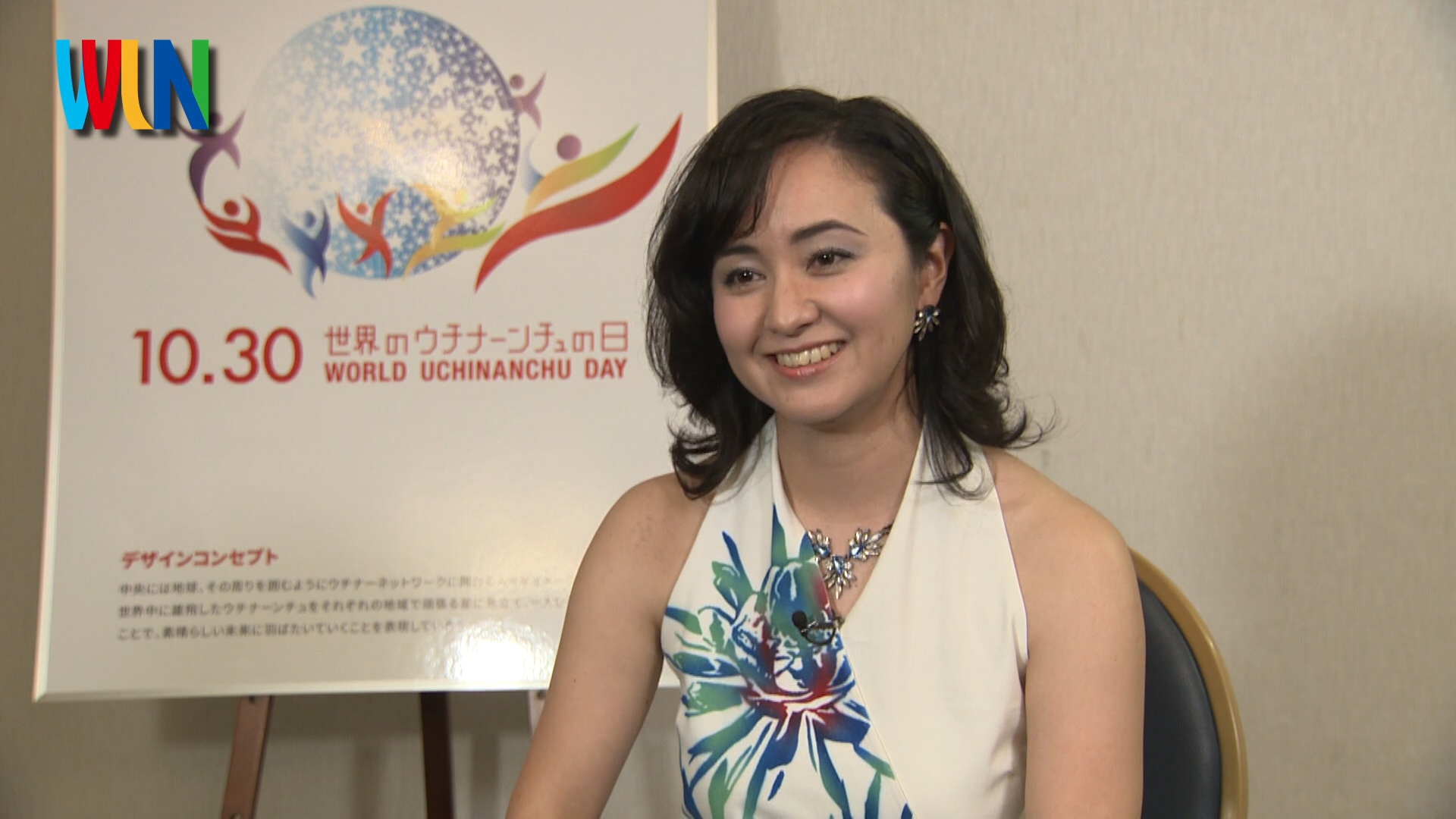Aiming to Build a Bridge Between Argentina and Okinawa
2018年12月12日
CLAUDIA OSHIRO

What made you come to Japan?
“Shima-Uta” by THE BOOM was covered by an Argentinian singer in Japanese, and the record became a hit; I was one of the chorus members. The cover song became popular and somehow the news reached Miyazawa-san, who wrote the song. After that, I had an opportunity to meet him in Argentina. I told him my dream was to become a musician in Japan, so he invited me to join him as a touring chorus member in the country.
What brought you back to your roots of Okinawa?
After moving to Tokyo, I worked with Miyazawa-san on his music tour. One day he told me, “Your roots are in Okinawa; it is important for you to learn Okinawan music and make it your own. I think it is what’s best for your future.” His advice made me come to Okinawa. Back in Argentina, I used to sing Okinawan folk songs (minyo) and was familiar with the culture, but learning Okinawan minyo at its source was very stimulating for me. First I started practicing at minyo pubs, because I stand on stage singing in front of customers every day, they would give me their honest opinions. Many of the customers who came to listen were talented singers and sanshin players themselves, so literally every day was full of excitement. I am glad that I was able to experience real Okinawan minyo in Okinawa.
What’s the difference between Okinawa and Uchinanchus around the world?
I didn’t really sense a difference. Okinawa’s old sayings and customs still live on in Argentina, so I feel that Uchinanchus living in Argentina and those living in Okinawa are not so different. That’s why when I first arrived, I knew that I came to Okinawa but it wasn’t so far from how I imagined it; I felt “Okinawa” also existed in Argentina as well. Seventy percent of the people of Japanese descent in Argentina are of Okinawan descent, and the kenjinkai is big so they organize many events weekly. There was a period of time when I participated in Okinawan dance, eisa, and other events quite often. On Senior Citizens’ Day or birthdays, the MC will often talk in Uchinaaguchi (Okinawan language). When I mention it people often tell me, “The old Okinawa is still alive in Argentina.”
What do you think about World Uchinanchu Day?
When I was in Argentina, I participated in events as an individual Uchinanchu who lived in Argentina. I am now based mainly in Okinawa as a singer; it feels a little strange to welcome Uchinanchu coming from around the world to Okinawa, but it makes me feel very honored and happy. I took part in the 2nd Worldwide Uchinanchu Festival from Argentina, and at the time I thought to myself, “One day, I want to become a bridge between Argentina and Okinawa.” I still carry that mindset with me now, and I hope to stay in a position to connect Uchinanchus around the world.
How do you become a successful out in the world?
I know many Uchinanchu who are successful globally; when I’m with them, I often hear about the history of immigration, however I feel the current younger generations aren’t really aware of it. I hope they will learn about the history of immigration, and personally, I hope that they show interest in the world as a whole through my music. There are many things in Okinawa to be proud of, so I wish for everyone to be confident when venturing out into the world. I believe Uchinanchu are very strong wherever they go. I think being proud of who you are makes you even stronger, so I want people to plunge fearlessly into the world.






